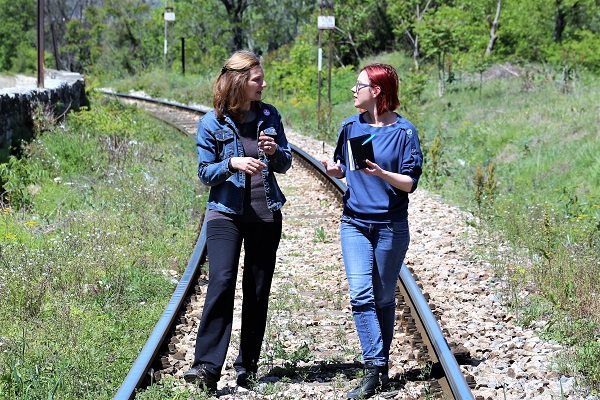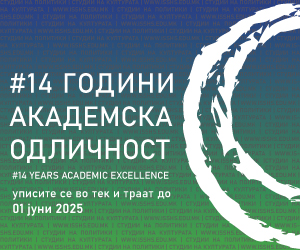More than one million refugees have passed through Macedonia in the period 2014-2016. Several dozen refugees have lost their lives on the railways throughout Macedonia. The system was not prepared, but concerned citizens compensated the gap caused by inefficient institutions…This is how we started the story about the refugee crisis and the treatment of refugees in Macedonia with Lence Zdravkin, humanitarian from Veles.
In front of CIVIL Media’s camera, she spoke about the first encounters with the refugees, about life by the railways, about the situation of the refugees and about the recommendations – if there were to be a new wave of refugees in Macedonia.
CIVIL Media: Life by the railway brought you a specific challenge during the wave of refugees in Macedonia. What made you help them?
ZDRAVKIN: Life by the railway. It became a great challenge for me from 2013, a major milestone in life…To get used to all sorts of moments, to cruel moments that life can inflict on you, and you don’t know when. Since 2013, when smaller groups of refugees started passing by the railways, there was not much time to think about who they were, nor what they were. What I could notice among all those young people, between 20 and 30 years of age, is that they needed help. There was no time to think where they were from, they needed warm tea, warm clothes and to safely continue their journey.
CIVIL Media: What is the situation like with the refugees now?
ZDRAVKIN: The situation with the refugees is calm now. We have a very small number of refugees coming from the southern border, from Greece. Now we have a bigger wave of refugees coming from the opposite direction, that is, from north to south. They are returning back, the same refugees that had left for Serbia, not being able to stand the pressure, because they have no status, they are left on the streets, in the parks, at the railway station in Belgrade…So they have decided to return to Greece again, thinking that from there they will be able to find a safer way or solution on how to leave for Europe.
CIVIL Media: Do you have assistance and support from those at home?
ZDRAVKIN: From the first moment, when they began arriving in smaller groups of 20/30 people, my family was always with me, in preparing food, in buying items they needed, medicine, something for the babies…There was always a need for me to send someone to buy something, to help them, from the very first day, we provided assistance together with my family.
CIVIL Media: There were many positive reactions to your work by the domestic and international public, but, unfortunately, there were also negative reactions. Who did the work of a citizen activist trying to help refugees passing through Macedonia bother?
ZDRAVKIN: At the beginning there was a certain xenophobia created among citizens that these are sick people, that they are carrying contagious diseases, that they are terrorists…I struggled with that, but I think I managed, perhaps not quite enough, but I did what I could do by myself. I tried to confront those people that expressed negativity towards the refugees, face to face with the refugees, to see what it means to be a refugee, a sufferer, to see a young man who perhaps is a doctor of science or a professor, but who due to circumstances had to flee his country…Because he doesn’t have a home anymore, nowhere to live, his family had burned, everything burned to the ground. As I was confronting my neighbors, friends – with the refugees, they started changing their opinion in a very short time and started joining me in the assistance.
CIVIL Media: New waves of refugees passing through Macedonia have been announced. What would you recommend on dealing with the situation?
ZDRAVKIN: We are following the media, and we know what the politics are like, changing by the hour. We are expecting, as the big officials are saying, a big wave of refugees is possible. I am here and getting ready, but all kind of help is needed, from medical supplies, up to food, shoes, water…
Biljana Jordanovska
Camera: Dehran Muratov
The interview is part of the project Society Without Borders, which CIVIL – Center for Freedom is implementing with the support of the German Heinrich Bὅll Foundation. The goal of the project is to promote and educate the citizens of Macedonia about the “Citizen’s Charter” – a global document for promoting civil rights and active participation of citizens in decision-making processes.
This post is also available in: MacedonianAlbanian





